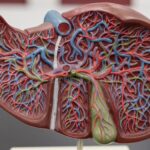What if I told you that hot water can freeze faster than cold water? Sounds impossible, right? Yet this counterintuitive phenomenon has puzzled scientists for decades, sparked heated debates, and might be happening in your own freezer right now.
What Is the Mpemba Effect?
The Mpemba effect occurs when hot water freezes faster than initially cooler water under certain conditions. Named after Tanzanian student Erasto Mpemba, who rediscovered it in 1963 while making ice cream, this effect challenges our basic understanding of thermal physics.
Think about it: if you put a cup of boiling water and a cup of room-temperature water in the same freezer, logic says the cooler water should freeze first. It has less heat to lose, after all. But sometimes, the hot water wins the race.
The Teenager Who Shook Up Science
Mpemba’s Ice Cream Discovery
In 1963, 13-year-old Erasto Mpemba was making ice cream in his Tanzanian school’s cooking class. Running late, he put his hot milk mixture directly into the freezer instead of waiting for it to cool. To everyone’s amazement, his ice cream froze before his classmates’ cooled mixtures.
When Mpemba told his physics teacher, he was ridiculed. “You are confused,” the teacher said. But Mpemba persisted, eventually partnering with physicist Denis Osborne to study the phenomenon scientifically. Their 1969 paper made the effect famous worldwide.
Ancient Observations
Here’s the twist: Aristotle mentioned this phenomenon over 2,000 years ago. Francis Bacon noted it in 1620, and René Descartes discussed it in 1637. The effect has been hiding in plain sight throughout history, dismissed as folklore until a determined teenager proved it real.
The Possible Mechanisms: Why Hot Beats Cold
Scientists have proposed several explanations for this paradoxical behavior:
Evaporation’s Helping Hand
Hot water evaporates faster, reducing the total volume that needs freezing. Less water = faster freezing. It’s like having a head start in a race by starting closer to the finish line.
Real-life example: When your grandmother boils water for tea, steam reduces the pot’s contents. That missing water doesn’t need to freeze later.
Convection Currents
Hot water creates stronger circulation patterns as it cools, mixing more vigorously than cold water. This enhanced mixing can accelerate heat transfer, potentially speeding up the freezing process.
Think of stirring soup: active mixing distributes heat more efficiently than letting it sit still.
Dissolved Gas Escape
Hot water holds less dissolved oxygen and carbon dioxide than cold water. These gases escape as the water heats up, and their absence might affect freezing behavior by changing the water’s properties.
Hydrogen Bond Rearrangement
Recent research suggests hot water’s molecular structure differs from cold water. The hydrogen bonds between molecules might arrange differently at higher temperatures, potentially creating conditions that favor faster phase transitions.
Real-World Applications and Observations
Ice Cube Mysteries
Ever notice that hot water sometimes makes clearer ice cubes than cold water? The same mechanisms behind the Mpemba effect—gas escape and convection—can reduce cloudiness in ice.
Skating Rink Science
Hockey rinks sometimes flood with warm water to create smoother ice surfaces. The warm water can freeze more uniformly, creating better playing conditions. While not purely the Mpemba effect, similar physics principles apply.
Cooking Complications
Some recipes call for adding hot ingredients to cold ones before refrigerating. Understanding the Mpemba effect helps explain why these techniques might work faster than expected.
The Controversy: Does It Really Exist?
The Reproducibility Problem
Here’s the scientific drama: Not every experiment demonstrates the Mpemba effect. Results vary wildly based on:
- Water purity and mineral content
- Container material and shape
- Exact temperatures used
- Environmental conditions
- Measurement methods
Some scientists argue the effect results from experimental errors or confirmation bias. Others insist it’s real but highly dependent on specific conditions.
The 2016 Bombshell
A comprehensive study by physicist Henry Burridge and colleagues failed to reproduce the effect under carefully controlled conditions. Their conclusion? The Mpemba effect might be an experimental artifact, not a genuine physical phenomenon.
The Rebuttal Research
Other scientists immediately pushed back, arguing that the effect requires very specific conditions to manifest. They claim Burridge’s study didn’t test the right scenarios.
The Deeper Physics Puzzle
Non-Equilibrium Thermodynamics
The Mpemba effect, if real, challenges our understanding of thermal equilibrium. Classical physics suggests systems should approach equilibrium predictably, but the effect implies history matters—how water reaches a temperature affects its future behavior.
Quantum Mechanical Possibilities
Some researchers propose quantum effects in water’s hydrogen bonding might explain the phenomenon. At the molecular level, hot water might retain “memory” of its thermal history.
Phase Transition Complexity
Water is already weird—it expands when freezing, has maximum density at 4°C, and exhibits anomalous behavior throughout its temperature range. The Mpemba effect might be another example of water’s exceptional properties.
Why This Matters (Even If It’s Debatable)
Scientific Method in Action
The Mpemba effect controversy showcases how science self-corrects. Initial acceptance, rigorous testing, skeptical challenges, and ongoing research demonstrate the scientific process working as intended.
Practical Implications
If real, understanding the effect could improve industrial cooling processes, food preservation techniques, and even climate modeling where rapid temperature changes occur.
Educational Value
The effect teaches humility: Even simple questions like “which water freezes faster?” can reveal the complexity lurking beneath everyday phenomena. Sometimes the most obvious assumptions need questioning.
The Bottom Line
Whether the Mpemba effect is real remains hotly debated. What’s undeniable is its impact: it’s inspired countless experiments, challenged scientific assumptions, and reminded us that even familiar substances like water can surprise us.
The next time you make ice cubes, remember Erasto Mpemba—the teenager who refused to accept “that’s impossible” and changed how we think about freezing. Sometimes the most profound discoveries come from questioning what everyone “knows” to be true.


